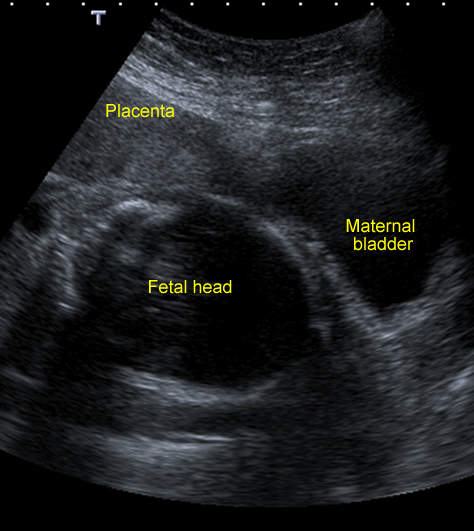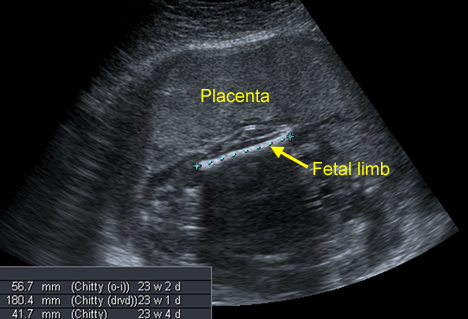IUGR
Click on the thumbnails to view each image.
Poor fetal growth is known as intrauterine growth retardation (IUGR).
IUGR occurs in about 3% of all pregnancies and is more common in first pregnancies, and in women who have had multiple pregnancies (> 5).
Women who are malnourished, who smoke or drink alcohol, and women with high blood pressure are at greater risk. Pregnancies affected by IUGR are more than four times as likely to have an adverse outcome. Babies who survive are more likely to suffer from long-term growth and development problems.
In severe IUGR, there are a number of features that can be seen e.g. poor growth of the fetal abdomen. This may be accompanied by poor growth of the fetal head. There may be significant reduction in the amount of fluid around the baby – oligohydramnios. In a few cases where there is severe IUGR, the cause may be due to an abnormality of the fetus rather than placental failure.
Note in both images below, there is very little fluid around the head or the limbs. Although in later pregnancy, the amount of fluid reduces, you should still be able to see fluid around the limbs.

